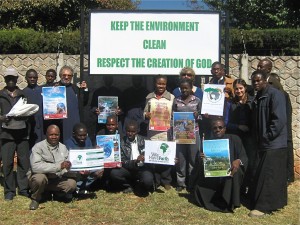
On both the left and the right, discussions about the environment can often turn to religion to remind us of our responsibility to take care of the planet. Both Presidents Bush and Obama have reminded us to be “good stewards of the earth,” despite the disagreement on what that really means, and the activism of a range of religious groups on the issue has led pundits and scholars to conclude that Americans’ Christianity has been getting greener over the past few years.
A new report from Michigan State University, however, may challenge this verdant vision. Lansing’s Fox News affiliate station reports that a new study by John Clements, Aaron McCright, and Chenyang Xiao suggests a real divide between between what Christian leaders are saying and congregants are doing. Their work with an environmental attitudes section in the 2010 General Social Survey found that rank-and-file Christians have not shown “a significant increase in pro-environmental attitudes, beliefs, and behaviors.” In fact, nonreligious respondents in the survey were more likely to show concern about the environment and more willing to sacrifice to protect it.
The good news from the authors’ article in Organization & Environment is that, among Christians alone, those who were more religious were more likely to engage in “private environmental behaviors” like driving less and recycling. The real question, then, is not which religion gets to claim it cares more about the environment, but rather how to make these beliefs and behaviors more common for everyone.

Comments